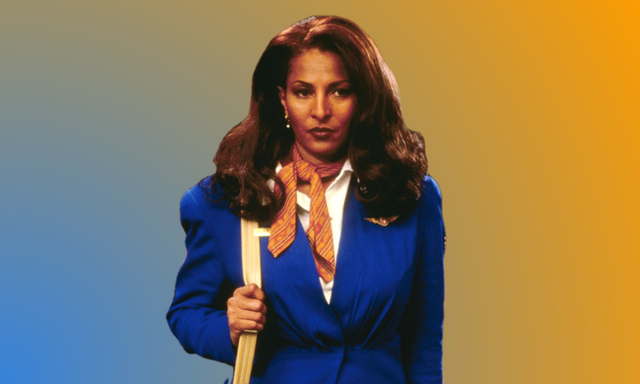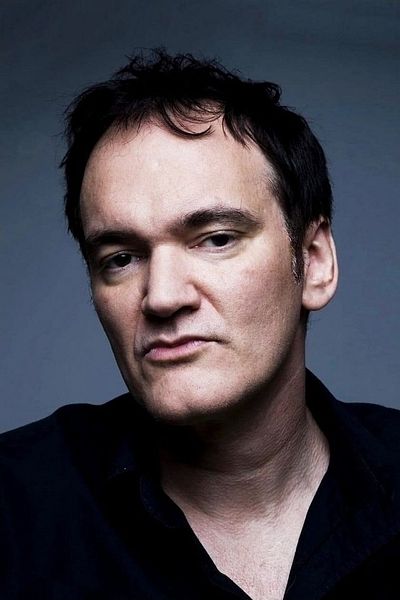Our continuing series of articles on movies released in 1997 - the year entertainment.ie began publishing - trundles on with Quentin Tarantino's follow-up to the uproarious, pop-culture touchstone that is 'Pulp Fiction' - a quiet little movie about an middle-aged air hostess, a bail bondsman, and a lot of cash...
If you look at the works of Quentin Tarantino, there's always a certain amount of it that's just outsized. It's all larger-than-life characters. Marcellus Wallace. Vic Vega. Django. Hans Landa. Daisy Domergue and John 'The Hangman' Ruth. Even Rick Dalton is an over-the-top amalgamation of dozens of real-life cowboy actors.
Yet in 'Jackie Brown', the only character that seems to fit in among his other characters is Ordell Robbie, played with relish by Samuel L. Jackson. The first time we meet him, he's yammering on about pistols and machine guns with a ponytail and braided chin. In just a short while, he's carelessly dipping ash into a coffee mug and languidly explaining why he needs to get an underling out of prison - which we later learn with the express intent of killing him in order to silence him. Yet, for all his panache, his leather bags, his gold watches, his Kangol hats, Ordell Robbie isn't the lead character.
Instead, he exists in orbit around other stars. In casting both Pam Grier and Robert Forster as the two leads, Tarantino was tracing the lines back to blaxploitation and straight-up exploitation movies of the '70s and '80s that they both starred in during that time, but really, he was casting two actors who were ignored by Hollywood casting directors for lead roles. This is the essence of what makes 'Jackie Brown' so heartbreaking and beautiful, and so unlike anything Tarantino has done before or since.
Jackie is, by slimeball LAPD detective Dargus' painfully correct analysis, clutching on to a shitty little job and eking out an existence. Max Cherry, meanwhile, has a relatively successful business but is hitting middle age and becoming listless and bored. It's not as if either of them is particularly happy or unhappy, but it's all so human and so understated as to be quietly devastating. It's such a sharply realised reality, and played with such deft confidence partly because these two actors - Pam Grier and Robert Forster - probably know all of this all too well.
Still, they're still more than capable of taking charge of their lives and seizing the chance. That's really what 'Jackie Brown' is about, when you come down to it - a second shot, and a chance for a different path for everyone involved. Both Grier and Forster's career was revitalised in the wake of 'Jackie Brown'. Forster even received a nomination for Best Supporting Actor at the Oscars
'Jackie Brown' plays like a response to 'Pulp Fiction'. Where that had all splash and style, 'Jackie Brown' had a quiet confidence about itself. It didn't need to lean on violence or shock value, and while the expletives may flow freely from all concerned, it's so commonplace as to be ignored entirely. At the time, of course, there was controversy over one racial slur that's used a total of 38 times in the movie. Spike Lee, in particular, sharply criticised it - yet Samuel L. Jackson ardently defended both Tarantino and the movie against accusations of racism.
It's fascinating to think about what might have been the career of Quentin Tarantino if 'Jackie Brown' became the blockbuster that 'Pulp Fiction' was. In box office terms, 'Pulp Fiction' made over three times the box office of 'Jackie Brown', to say nothing of the cultural impact it made. It didn't lack for awards recognition or critical acclaim, but for whatever reason, Tarantino has never really made a movie like it since. Indeed, the closest one could argue he came to getting near to it was 'Once Upon A Time... In Hollywood', which was far more laid back and human - in parts, anyway.
If 'Pulp Fiction' begat 'Jackie Brown', then 'Jackie Brown' begat 'Kill Bill' and all that followed after it. Tarantino has never adapted someone else's work since 'Jackie Brown', and none of his works since have been quite so understated. For his part, Elmore Leonard, the author of the source novel 'Rum Punch', declared it was his favourite of the twenty-six adaptations of his written work. Leonard's work, in fact, played a role in Tarantino's early life. The director, as a wayward teenager, shoplifted the author's 1978 novel 'The Switch'.




















































































